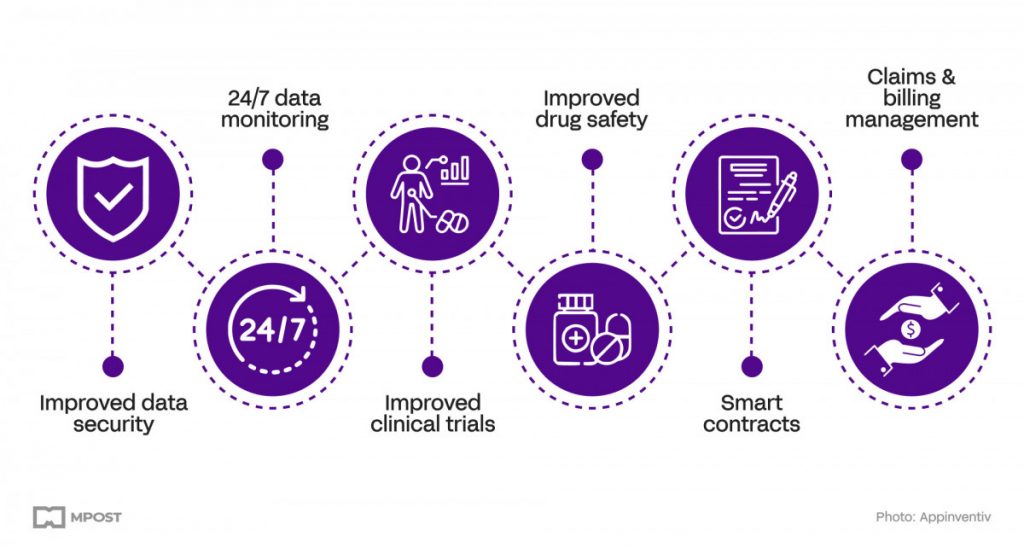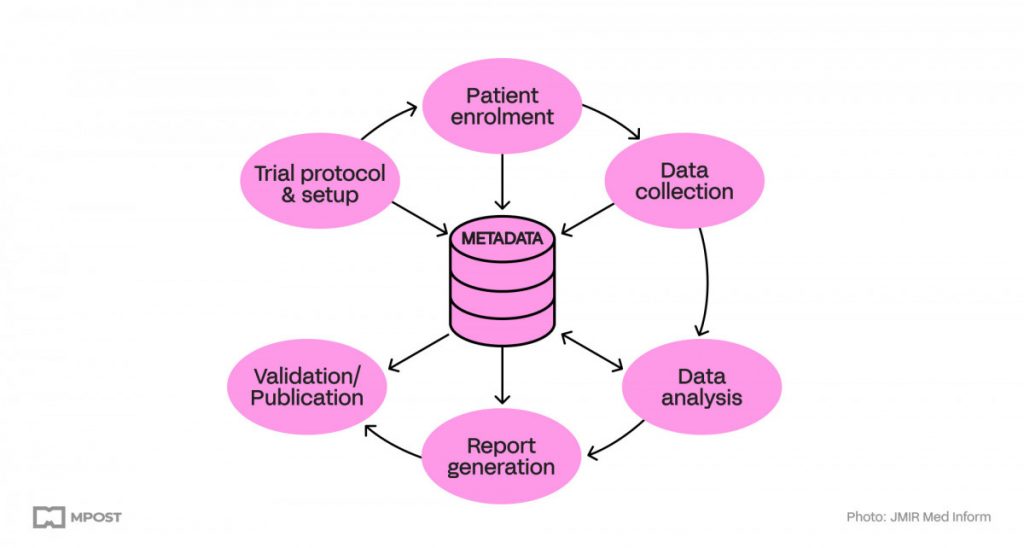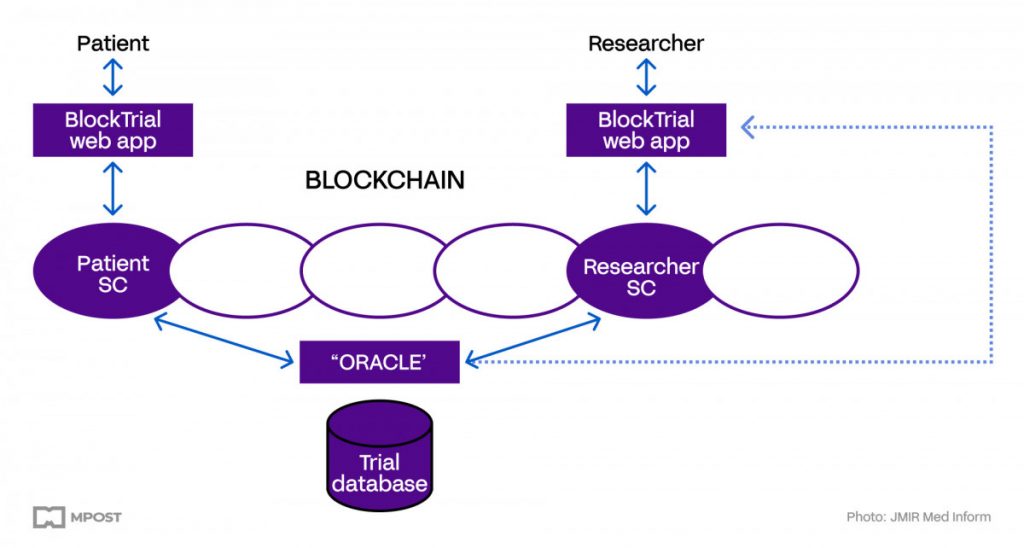Solving Healthcare Data Interoperability Challenges: Blockchain’s Potential in 2024


In Brief
Blockchain technology significantly enhances data security and privacy, providing an immutable, encrypted record of patient data in healthcare, thus mitigating risks of breaches, fraud, and identity theft.
This article examines blockchain’s possible uses in the medical field. We’re providing a thorough overview of blockchain news and how this technology can change the healthcare environment by drawing on study and other research.
How Blockchain Can Be Used for Healthcare
The capacity of blockchain technology to improve data security and privacy is one of its biggest benefits. Patient data protection is crucial in the healthcare industry. Data breaches in traditional healthcare systems can have serious repercussions, including fraud and identity theft. Blockchain offers a safe, unchangeable record for patient data storage, reducing these concerns. On a blockchain, every transaction is connected to the one before it and encrypted. Unauthorized parties find it almost tough to change the data.

Photo: Appinventiv
In the healthcare sector, data interoperability is a major concern. Disparate systems used by various healthcare providers can result in ineffective communication between them and fragmented patient information. Authorized healthcare practitioners have access to this database, which offers a comprehensive and current perspective of a patient’s medical history.
Clinical trials and medical research may be conducted much more quickly thanks to blockchain technology. Problems including data tampering, a lack of openness, and inefficient data administration are common in traditional clinical studies. Blockchain technology enables the recording of every stage of the trial procedure, including patient recruiting and data analysis. It produces an easily verifiable, unchangeable audit trail.

Photo: JMIR Med Inform
Additionally, ledger technology can make it easier for universities to share research data securely. The rate of medical advancements and discoveries can be accelerated by researchers working together more successfully.
Another area where ledger can have a magnificent influence is the healthcare supply chain. For patient safety, it is essential to guarantee the legitimacy and security of medical supplies, especially prescription drugs. Drug counterfeiting is a major issue that affects the entire world and puts patients’ health in serious danger. Every stage of the process, from production to distribution, will be tracked on the blockchain.
Blockchain, for instance, may be used by a hospital to trace the origin of a batch of vaccinations and make sure the proper storage and transportation procedures were followed. This degree of openness can eventually safeguard patient safety.

Photo: JMIR Med Inform
Enabling Telemedicine Patient Monitoring
The significance of remote patient monitoring (RPM) is growing, particularly when it comes to managing chronic illnesses and the aging population. Blockchain can improve RPM by offering a dependable and safe means of gathering and distributing patient data. Wearable sensors and other RPM devices can immediately record data onto a blockchain.
Healthcare professionals may use this real-time data to remotely monitor patients’ states, enabling prompt interventions and individualized treatment regimens. Blockchain can offer a full perspective of a patient’s health state and make it easier to integrate RPM data with electronic health records (EHRs).
In the healthcare industry, regulatory compliance is a major concern. Strict controls over the handling of patient data are necessary to comply with data protection laws like HIPAA in the US. The unchangeable ledger of blockchain technology can offer an auditable record of data access and updates.
Furthermore, compliance-related procedures may be automated with the help of smart contract solutions, which are self-executing agreements with the conditions of the agreement encoded directly into the code. Smart contracts, for instance, have the ability to automatically enforce security and data-sharing consent rules. It guarantees that patient information is only disclosed to those who are permitted and in compliance with legal requirements.
Disclaimer
In line with the Trust Project guidelines, please note that the information provided on this page is not intended to be and should not be interpreted as legal, tax, investment, financial, or any other form of advice. It is important to only invest what you can afford to lose and to seek independent financial advice if you have any doubts. For further information, we suggest referring to the terms and conditions as well as the help and support pages provided by the issuer or advertiser. MetaversePost is committed to accurate, unbiased reporting, but market conditions are subject to change without notice.
About The Author
Victoria is a writer on a variety of technology topics including Web3.0, AI and cryptocurrencies. Her extensive experience allows her to write insightful articles for the wider audience.
More articles

Victoria is a writer on a variety of technology topics including Web3.0, AI and cryptocurrencies. Her extensive experience allows her to write insightful articles for the wider audience.


















































